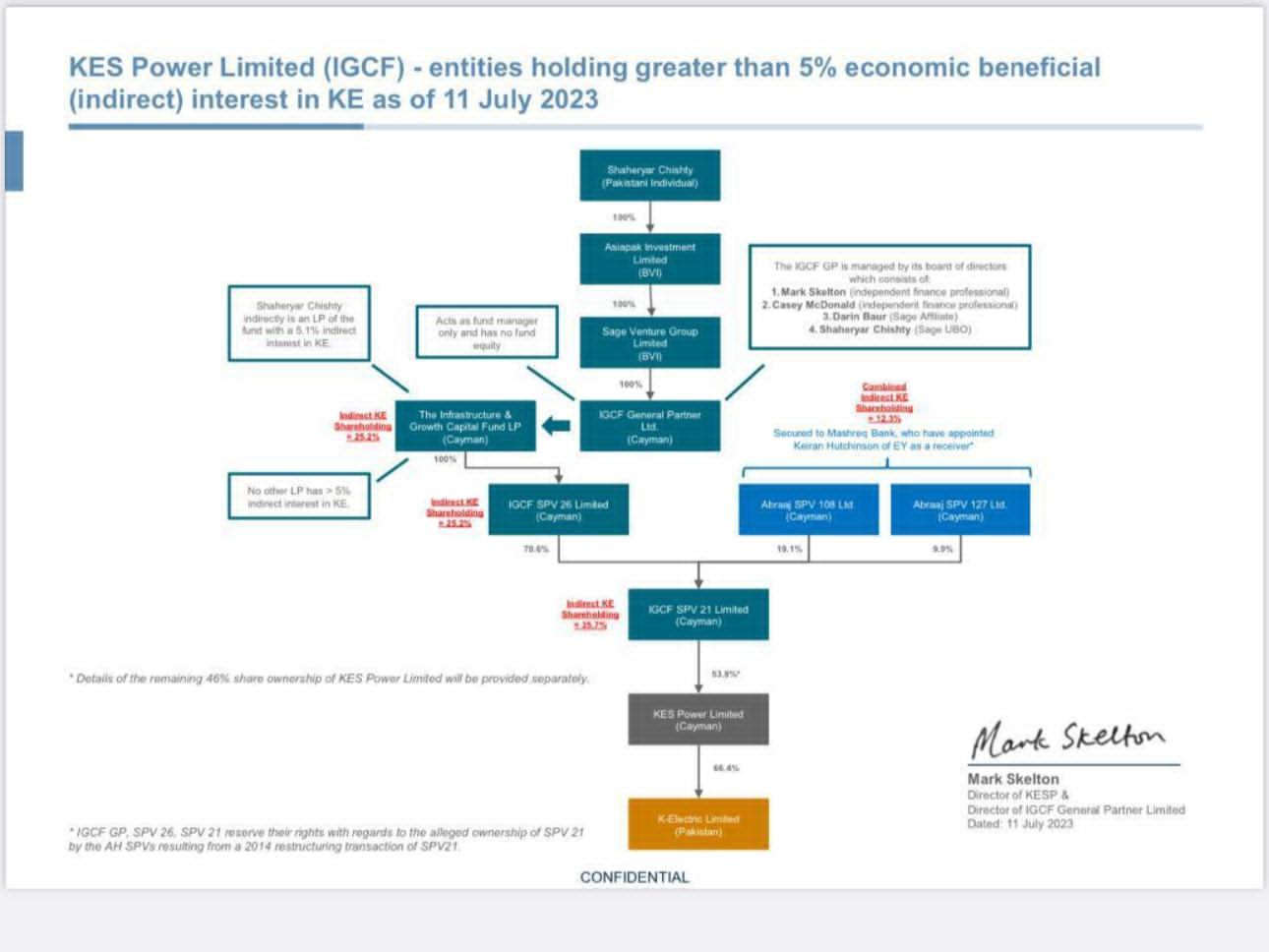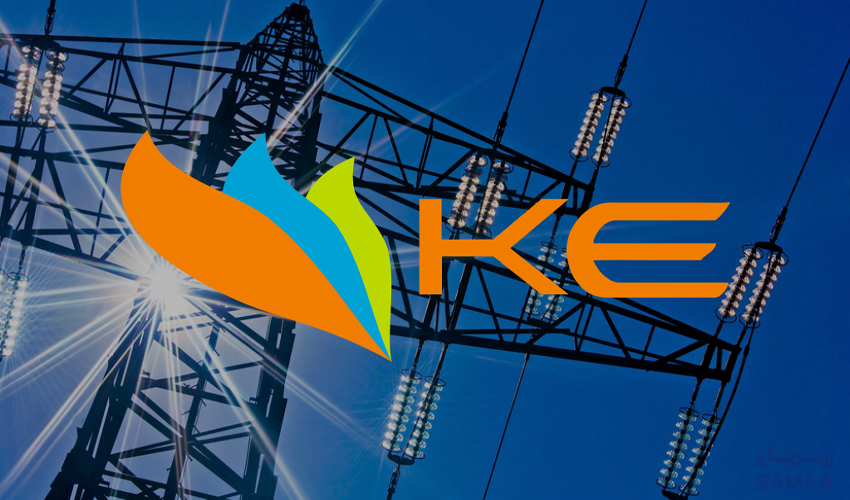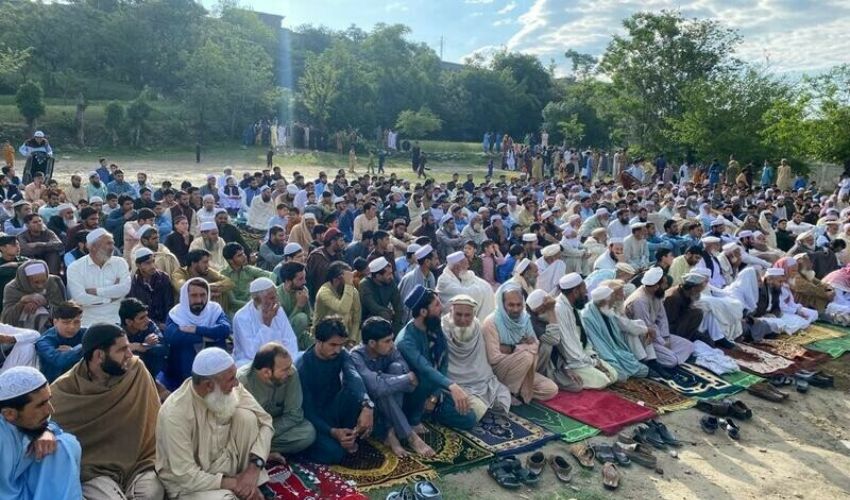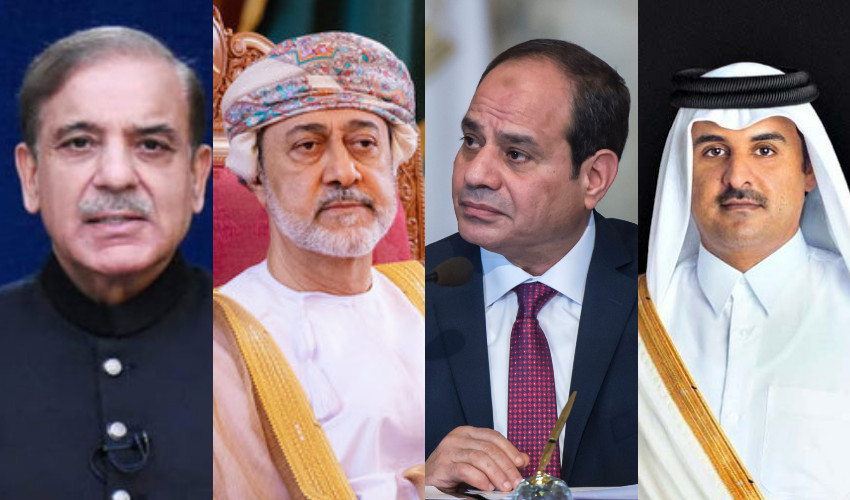The Chairman of Karachi Electric (KE), Mark Skelton, has officially confirmed that Shehryar Chishti's indirect beneficial ownership in KE, facilitated through the Infrastructure and Growth Capital Fund (IGCF Fund), stands at only 5.1%. This revelation contradicts numerous previous claims made by Shehryar Chishti, in which he portrayed himself as the majority shareholder of KE.
Leaked documents from Alvarez and Marsal, a renowned international consulting firm, disclose that Shehryar Chishti indirectly holds a Limited Partner (LP) position in the IGCF Fund, entitling him to a 5.1% indirect interest in KE. These documents, accessible to this publication, bear the signature of Mark Skelton, who currently serves as the Chairman of KE and Cayman Island-registered KES Power Limited (KESP), the parent entity of KE. Notably, Mr. Skelton also holds directorship positions in IGCF General Partner Limited, the manager of the IGCF Fund, and Alvarez & Marsal Europe LLP.
The certified document, dated July 11, 2023, and titled "KES Power Limited (IGCF) – entities holding greater than 5% economic beneficial (indirect) interest in KE as of 11 July 2023," has unveiled this previously undisclosed ownership structure.
A significant debate has unfolded in the Pakistani media in recent months regarding Shehryar Chishti's claims of being the "majority" owner of K Electric Limited, often accompanied by reports suggesting his substantial ownership stake in the company.
The original investors from Saudi Arabia and Kuwait, Al-Jomaih and NIG, consistently rebuffed these claims, asserting their indirect share of over 30.7% in KE. They contended that Shehryar Chishti's assertion of majority ownership was misleading. The newly certified document from KE's Chairman and KESP reinforces this standpoint.
The leaked document, obtained from anonymous sources, provides undeniable evidence, bearing the signatures of Mr. Mark Skelton, Chairman of KE. This revelation has raised several critical questions.
The certified document comprehensively details ownership information and structural aspects, shedding light on the true extent of IGCF Fund's involvement in K-Electric. It also discloses that approximately 30% of IGCF SPV 21, the third shareholder in KESP (apart from the Saudi and Kuwait groups), is held by Mashreq Bank, effectively translating into Mashreq Bank's 10.5% indirect stake in KE. Compared to Chishti's Limited Partner / Investor role in the IGCF Fund, his transparent ownership stands at only 5.1%, less than half of Mashreq Bank's stake.

Chishti's economic interest in KE was cultivated through the acquisition of Limited Partners interests from various investors in the IGCF Fund. Originally established in 2008, the IGCF Fund garnered over eighty investors, and with a horizon extending over fifteen years, investor fatigue set in, prompting many to seek cashing out.
The newfound clarity on the ownership structure of K Electric has reverberated across various sectors. Investors and stakeholders, previously relying on different narratives, are grappling with this revised reality.
Legal experts are beginning to scrutinize the implications of this revelation, questioning financial disclosures, corporate governance, and regulatory oversight. The sudden shift in the perception of the company's ownership raises the prospect of legal challenges and investigations. This incident underscores the importance of accurate and transparent reporting in the corporate realm.
The revelation of Shehryar Chishti's actual stake in KE serves as a cautionary tale regarding the influence of misinformation and underscores the need for accurate, verified information. The episode highlights the significance of investigative journalism in unraveling the truth behind corporate narratives, emphasizing the role of independent media in holding influential entities accountable and providing the public with precise information.
Furthermore, it underscores the supervisory role of regulatory authorities in probing concealed transactions in offshore jurisdictions, especially when such transactions pertain to assets of Pakistan's national security.



























